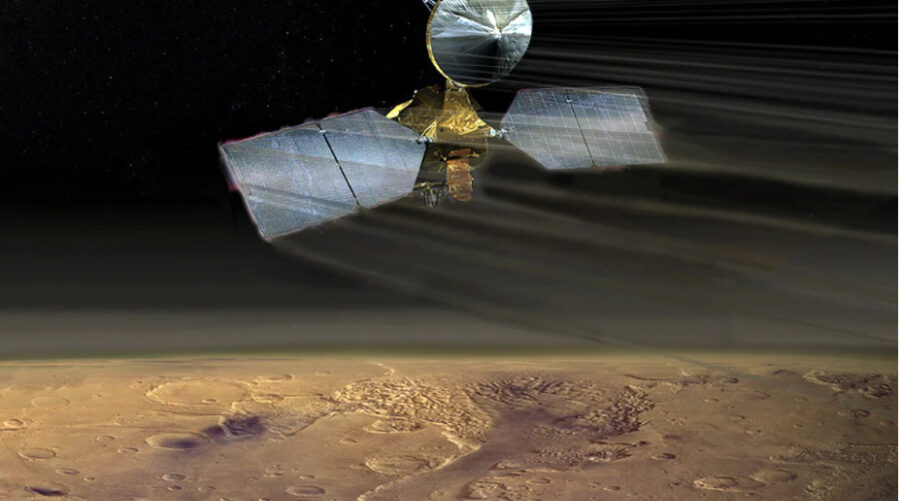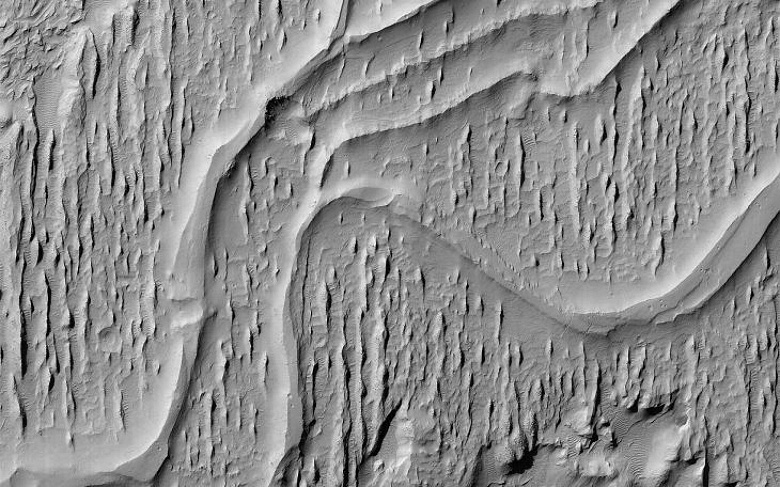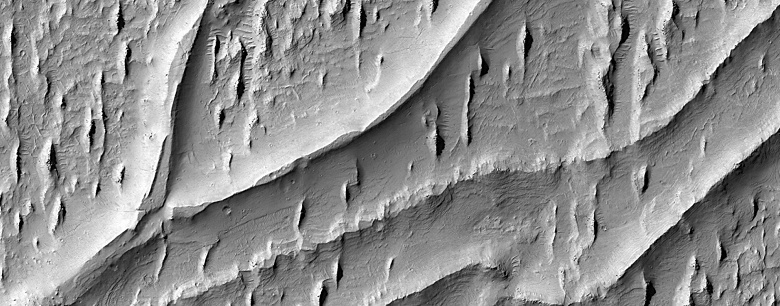
The Mars Reconnaissance Orbiter has revealed an ancient river that flowed across the surface of Mars billions of years ago. The image was published in NASA’s Planetary Photo Journal.
The photo shows the ridges in the Aeolis Planum region, which are the embodiment of an ancient river that once flowed across Mars in an era of milder climate. This diversity of archaeological traces in the geologic history of Mars contrasts with the planet’s current appearance.

The winding shapes are the result of the ancient river filling its channel with gravel, and fine-grained materials surrounding the waterway when the coastlines shifted. .Scientists are fascinated by a phenomenon they call inverted channels. When the river dried up, the fine-grained materials were carried away, leaving a trace in the form of rocky ridges.
The image was taken from the orbit of Mars at an altitude of about 267.21 km above its plains. The HIRISE camera (High Resolution Imaging Research Experiment) provided scientists with the opportunity to obtain these clear and detailed images.

The peculiarity of Mars is the significant loss of its atmosphere, which turned it into an extremely dry and deserted place. It is now 1000 times drier than the driest desert on Earth. In combination with the irradiated surface of Mars, this creates very unsuitable conditions for life.
Nevertheless, NASA’s rover Perseverance is actively exploring the surface of Mars, looking for potential traces of primitive life. Its task is to carefully study the area, in particular the areas where these ancient rivers flowed.
In the long term, it is planned to send even more missions to Mars, orbital and surface, to study the planet more deeply and find additional evidence of the possible past or present existence of life on the Red Planet. In addition, a compact Martian airplane is being actively developed, which is capable of overcoming the Martian desert at a speed of approximately 217.3 km/h. Scientists are confident that future scientific expeditions to Mars will provide more and more clues to the mysteries of the Red Planet.

